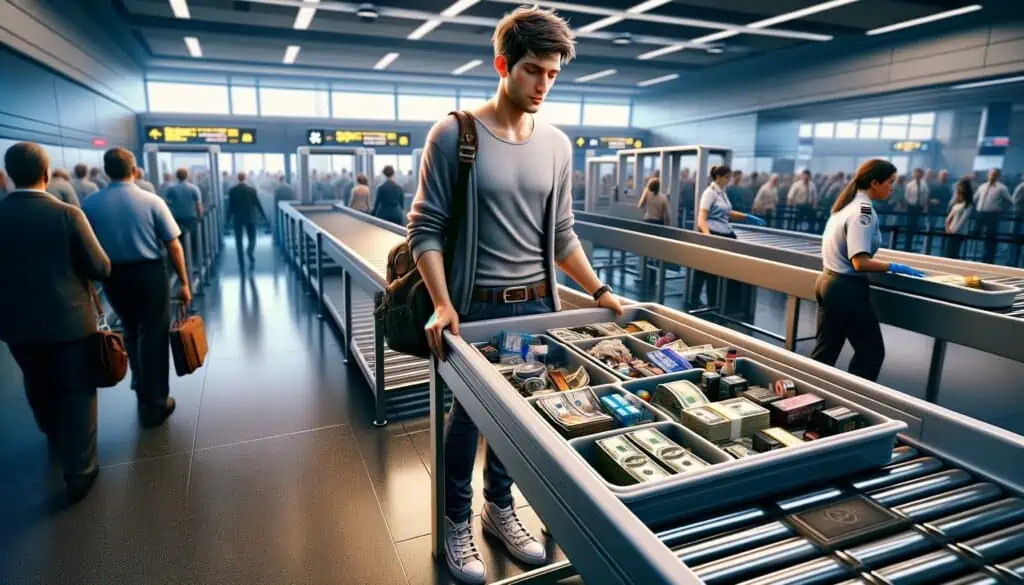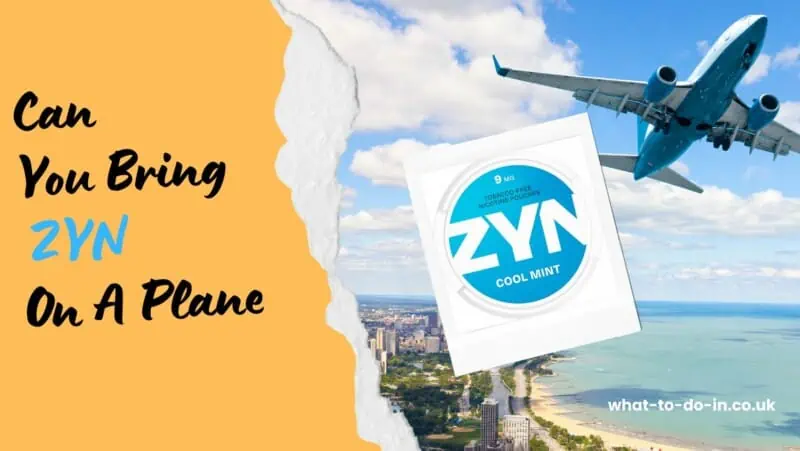Every day, millions of travelers pass through airports around the world, carrying with them various belongings that range from the essential to the peculiar. Among these items, currency—particularly cash—holds a special place as both a necessity and a symbol of economic freedom. The concept of traveling with money dates back centuries to the times of ancient traders and explorers, who would carry coins and treasures across vast distances. However, in our modern era of heightened security concerns and strict regulatory frameworks, the act of bringing cash on a plane is subject to various rules and regulations.
With the advent of commercial aviation in the early 20th century, the possibility of traveling with significant amounts of cash became more prevalent. Over time, as the number of air travelers surged, authorities began to pay closer attention to the implications of moving large sums of money across borders. This attention has been driven by efforts to combat illegal activities such as money laundering, tax evasion, and the financing of terrorism. Consequently, international and national regulatory bodies have established protocols and limits on the amount of cash that can be legally transported on an airplane without declaring it to customs. Today, while travelers are generally allowed to bring cash on a plane, there are thresholds above which one must declare the funds to the relevant authorities, thus highlighting the balance between the freedom to move assets and the need for oversight in an interconnected global economy.
Can You Take Cash On A Plane?
Yes, you can take cash on a plane, but there are certain regulations you need to be aware of, depending on the country you are flying from and to. In the United States, for example, if you are carrying more than $10,000 in currency or monetary instruments, you must declare it to customs officials. Failure to do so can result in fines or even seizure of the money. The rules are in place to prevent money laundering and other illegal activities. When traveling internationally, it’s important to check the currency restrictions for both your departure and destination countries to ensure compliance with their laws. Carrying large amounts of cash can also pose security risks, so it’s advisable to consider alternatives like travelers’ checks or prepaid debit cards. In the following section, we will delve deeper into the regulations, potential risks, and best practices for taking cash on a plane.
Carrying Cash on USA Domestic Flights: TSA Regulations
Travellers on USA domestic flights may carry cash, but there are certain considerations they should keep in mind. The Transportation Security Administration (TSA) is primarily concerned with safety and security, not necessarily with the enforcement of currency reporting requirements. However, if you are carrying a large sum of money, you may be subject to additional scrutiny.
According to the TSA, there is no limit on the amount of cash or monetary instruments that can be brought onto a domestic flight. However, they reserve the right to ask passengers about the origins of the cash and its intended use in the event it appears suspicious. It’s important to note that while the TSA may inquire about cash, the reporting and seizure of large sums of money are typically handled by other agencies, such as Customs and Border Protection (CBP) for international flights or local law enforcement if illegal activity is suspected. For the most current information, travelers should reference the TSA website directly.
Packing Cash for Security Screening
- Place cash inside a carry-on bag rather than in checked luggage to keep it secure and with you at all times.
- Use a money belt or concealed pouch as an alternative to carrying cash openly or in a wallet to minimize the risk of theft.
- Organize cash in a clear, sealable bag or envelope for ease of screening if requested by TSA agents.
- During screening, maintain visual contact with your carry-on containing cash to avoid potential loss or theft.
Declaring Cash to Authorities
While the TSA’s focus is on the safe transport of passengers and compliance with security requirements, there may be confusion regarding the need to declare cash at the security checkpoint. On domestic flights within the United States, there is no requirement to declare cash or monetary instruments under a certain threshold. However, some states have currency reporting requirements if you are entering or leaving the state; it is advisable to check with state laws where applicable.
Security Tips for Traveling with Large Amounts of Cash
- Maintain a low profile by avoiding public counting or displaying large sums of cash.
- Consider using traveler’s checks or prepaid debit cards as safer alternatives to carrying large amounts of cash.
- Keep a record of serial numbers of bills or other pertinent details in case the cash is lost or stolen.
- Invest in travel insurance that covers theft or loss of cash during your journey.
- Be aware of surroundings and practice caution when carrying cash to prevent becoming a target for theft.
Legal Implications and Reporting
It’s important to remember that while carrying cash on domestic flights is legal, the presence of a large amount of money can sometimes be associated with criminal activity, such as money laundering or drug trafficking. Law enforcement officials may question individuals carrying large sums and can confiscate cash if they suspect it is connected to illegal activity. Passengers should be prepared to explain the source and intended use of the cash if asked by authorities. Remember that misrepresenting or lying to a federal agent is a criminal offense.
Alternatives to Carrying Cash
- Credit and Debit Cards: Widely accepted and can be replaced if lost or stolen.
- Prepaid Travel Cards: Can be preloaded with funds and often offer a safer alternative to cash.
- Traveler’s Checks: A secure way to carry funds; can be exchanged for local currency or used as cash in many locations.
- Electronic Transfer: Services like PayPal or bank-to-bank transfers can be convenient for sending larger sums of money.
- Mobile Payment Apps: Apps like Venmo, Apple Pay, or Google Wallet provide secure and cashless transactions.
| ✔ Pros | ✘ Cons |
|---|---|
| Convenient for places that do not accept cards | Carrying large amounts of cash can be a security risk |
| No foreign transaction fees | If lost or stolen, cash cannot be replaced |
| Useful for emergencies or tipping | Risk of currency fluctuation when traveling internationally |
| No need for ATMs which may have high fees | Large sums of cash may need to be declared at customs |
| Some vendors offer discounts for cash transactions | Cash can be cumbersome to carry and manage |
Flying with Cash Internationally
Traveling with cash can be necessary for a variety of reasons, whether for personal or business purposes. However, when flying internationally, it’s crucial to be aware of the various guidelines and regulations that govern the transport of currency. These rules can vary significantly from one country to another and are in place to prevent money laundering, terrorism financing, and other illegal activities. It’s essential to familiarize yourself with these regulations to ensure a smooth journey and avoid potential legal issues.
International Air Transport Association (IATA) Guidelines
- Passengers are advised to declare cash amounts that meet or exceed the threshold set by the country of arrival or departure.
- IATA recommends checking with individual airlines for their specific policies regarding cash transport.
- Travelers should be prepared to provide documentation explaining the source and intended use of the cash if requested by authorities.
For more detailed information, visit the IATA website regarding cash policies: IATA Cash Policies.
Country Specific Regulations
Each country has its own set of rules and regulations when it comes to flying with cash. It’s imperative to check the regulations of both the departure and arrival countries. The amount of cash you can carry without declaring it, and the process for declaration, if necessary, can differ greatly.
United Kingdom
For the UK, visit: UK Government Cash Regulations.
Europe
For Europe, visit: EU Cash Controls.
Canada
For Canada, visit: Canada Border Services Agency.
Australia
For Australia, visit: AUSTRAC.
New Zealand
For New Zealand, visit: New Zealand Customs Service.
Asia
Regulations in Asia vary by country; travelers should consult the specific country’s customs website for accurate information.
Singapore
For Singapore, visit: Singapore Customs.
10 Airline-Specific Regulations for Flying with Cash
Airlines may have their own policies regarding flying with cash, which can include restrictions on the amount of cash or the requirement to declare it to the airline staff. It’s essential to review and comply with these regulations to avoid any issues during your flight.
American Airlines
For American Airlines’ policy, visit: American Airlines Cash Policy.
Delta Air Lines
For Delta Air Lines’ policy, visit: Delta Air Lines Cash Policy.
United Airlines
For United Airlines’ policy, visit: United Airlines Cash Policy.
Southwest Airlines
For Southwest Airlines’ policy, visit: Southwest Airlines Cash Policy.
British Airways
For British Airways’ policy, visit: British Airways Cash Policy.
Lufthansa
For Lufthansa’s policy, visit: Lufthansa Cash Policy.
Air Canada
For Air Canada’s policy, visit: Air Canada Cash Policy.
Qantas
For Qantas’ policy, visit: Qantas Cash Policy.
Air France
For Air France’s policy, visit: Air France Cash Policy.
Emirates
For Emirates’ policy, visit: Emirates Cash Policy.
How to Pack Cash in Your Luggage
When traveling, it’s important to pack your cash securely to avoid theft and minimize the risk of loss. Here are some tips for packing cash in both your carry-on and hold luggage.
Packing Cash in Carry-On Luggage
- Use a Money Belt: A money belt can be worn around your waist and under your clothes, making it a discreet way to carry cash.
- Divide Your Money: Spread your cash among different pockets and compartments within your carry-on to avoid losing everything if a single pocket is compromised.
- Use a Travel Wallet: A travel wallet is designed to hold travel essentials like cash and passport. Keep it with you at all times.
- Stay Organized: Use envelope systems or small pouches to separate different currencies and keep track of your spending.
Packing Cash in Hold Luggage
- Avoid Large Amounts: It’s generally not recommended to pack large sums of cash in checked luggage due to potential theft.
- Use a Hidden Compartment: If you must place cash in your hold luggage, find a hidden compartment like inside a shoe or a hollowed-out book.
- Seal and Disguise: Place cash in a sealed envelope or bag and tuck it amidst mundane items to avoid drawing attention.
- Use Luggage Locks: Secure your luggage with TSA-approved locks to deter opportunistic thieves.
- Consider a Luggage Tracker: For added security, use a smart luggage tracker to keep tabs on your bags throughout your journey.
Alternative Payment Methods and Essential Documents for Air Travel
When traveling by plane, besides cash, it’s advisable to carry a variety of payment methods such as credit and debit cards, which are widely accepted and can provide additional security and convenience. Traveler’s checks are also an option, though less commonly used. Additionally, ensure you have all necessary travel documents, including your passport for international flights, any required visas, and your boarding pass. It’s also wise to carry a form of identification, such as a driver’s license or a government-issued ID card, especially for domestic travel. For added peace of mind, consider bringing a small amount of local currency of your destination country to cover immediate expenses upon arrival.
FAQ’s About Can You Bring Cash On A Plane?
When preparing for air travel, many passengers have questions regarding the transportation of cash. Security protocols, customs regulations, and airline policies might seem complicated, but understanding the ins and outs of flying with currency is essential. This section offers a collection of Frequently Asked Questions to help travelers navigate the rules and ensure a smooth journey while carrying cash on a plane.
Can I bring any amount of cash on a domestic flight within the United States?
Yes, within the United States, you are allowed to carry as much cash as you like. However, security personnel may ask questions if they find large sums of cash during screening.
Are there any limits to how much cash I can bring on an international flight?
There’s no limit to how much cash you can carry on an international flight, but you must declare amounts over $10,000 to customs when arriving or leaving most countries, including the USA.
What happens if I do not declare cash over the reporting limit on international flights?
Failure to declare cash over the control limits can result in the seizure of the cash and potential fines or legal action against you by the authorities.
Do I need to declare cash if I’m travelling between countries in the European Union?
When traveling between EU countries, you are not required to declare the cash you are carrying. However, if a country outside the EU is your point of entry or exit, the declaration rules apply.
How should I carry cash to ensure its security during air travel?
It’s best to keep cash in a carry-on bag and within your sight at all times. Consider using a money belt or a hidden pouch for additional security.
Can security officers confiscate my cash at the airport?
Security officers can confiscate your cash if they suspect illegal activity or if you fail to comply with the declaration regulations. Having documentation for the source of the cash could help in such situations.
Is it safer to travel with a cashier’s check or traveler’s check instead of cash?
Cashier’s checks and traveler’s checks are considered safer than cash because they can be canceled and replaced if lost or stolen. They are also subject to the same declaration rules.
Should I keep my cash with me through security, or pack it in my checked baggage?
Always keep your cash with you through the security checkpoint. Do not pack it in your checked baggage, as it could be more vulnerable to theft.
What should I do with my cash during the security screening?
Keep your cash in a separate, clear plastic bag and place it into a bin while going through security. This helps you keep track of your cash and speeds up the screening process.
If I’m carrying a large sum of cash, can I ask for a private screening at the airport?
Yes, if you’re carrying a large sum of money and you would like privacy, you can request a private screening from the TSA officer.
Packing It All Up
Travelers can indeed bring cash on a plane, but must consider various regulations that govern the transport of currency. For domestic flights within most countries, there are no legal limits on the amount of cash that passengers can carry. However, security personnel might question individuals carrying unusually large sums of money. It’s important to provide clear and honest explanations if questioned, and carrying documentation that corroborates the source and purpose of the funds can be helpful. Additionally, for international travel, it is crucial to be aware of and comply with the currency reporting requirements. Typically, amounts exceeding $10,000 or its equivalent must be declared to customs upon entry or departure. Failure to report large sums of cash can lead to penalties, including confiscation of the undeclared funds.
When packing cash for a flight, opting for safety and discretion is advisable. Using a money belt or a neck wallet can keep cash secure and hidden from public view. It’s also beneficial to split the cash between carry-on luggage and what is kept on your person, as a precaution against theft or loss. Moreover, travelers should consider the potential risks of carrying large amounts of cash and weigh the convenience against the use of travelers’ checks, prepaid debit cards, or the increasing options for electronic payments. Staying informed about airline policies and country-specific guidelines will ensure a smoother travel experience when carrying cash.






